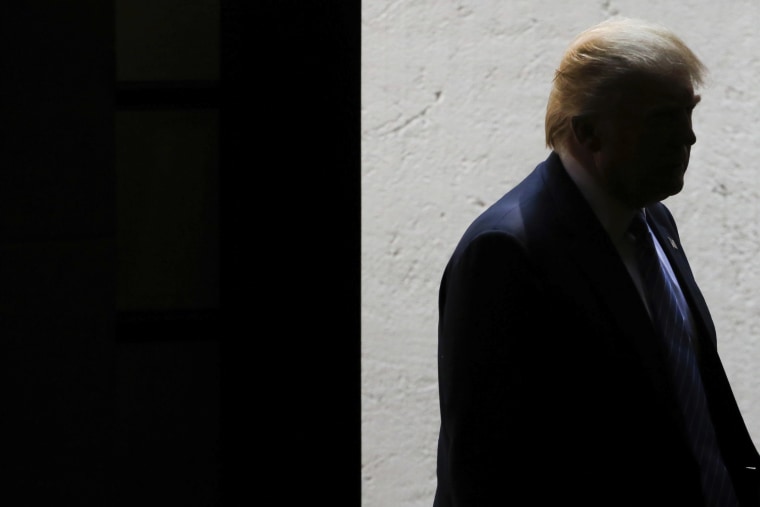Sen. Brian Schatz (D-Hawaii) offered a provocative response to Donald Trump's decision to fire FBI Director James Comey: "We are in a full-fledged constitutional crisis." The New York Times' David Leonhardt used the same phrase, calling for an independent inquiry of Trump's Russia scandal in order to "unwind the constitutional crisis."It's worth pausing to consider whether the label is appropriate given the circumstances.Vox published an interesting piece in February, noting analysis from Princeton political scientist Keith Whittington on the two broad categories of what actually qualifies as a proper constitutional crisis.
Operational crises occur "when important political disputes cannot be resolved within the existing constitutional framework." That is, the Constitution itself is failing, and is allowing people engaged in a political conflict to each behave in ways that together can result in calamity.A "crisis of constitutional fidelity," by contrast, occurs when, "important political actors threaten to become no longer willing to abide by existing constitutional arrangements or systematically contradict constitutional proscriptions." That's when what the Constitution prescribes is clear, but one or more politician or branch of government willfully defies it.
That's pretty straightforward. A crisis occurs when there's constitutional ambiguity or when officials act outside of the constitutional framework, causing institutional breakdowns.So, have we reached that stage in the contemporary United States? My fear is we're uncomfortably close.The facts as they currently exist are breathtaking. We have a president who received fewer votes than his rival candidate, and who benefited from illegal intervention in our democracy from a foreign adversary. That same president, furious that his campaign is the subject of a federal investigation into whether or not his team colluded with the foreign attackers, just fired the director of the FBI -- and appears to have lied about why.Within our legal system, a president has the authority to dismiss an FBI director, but the law does not allow a president to obstruct justice.Meanwhile, the independence of the Justice Department's leadership no longer seems to exist, and there's no reason to believe Congress, led by members of the president's party, has any intention of fulfilling its role as check on the executive branch's abuses.All the while, as that same president attacks the legitimacy of American courts, we see him firing a series of other top law-enforcement officials -- including an acting attorney general and dozens of U.S. attorneys -- who, for a variety of reasons, have become perceived obstacles for the White House.Is Donald Trump abiding by existing constitutional arrangements or systematically contradicting constitutional proscriptions? It would be wise for the political world to have this conversation. Our system of government may depend on it.
